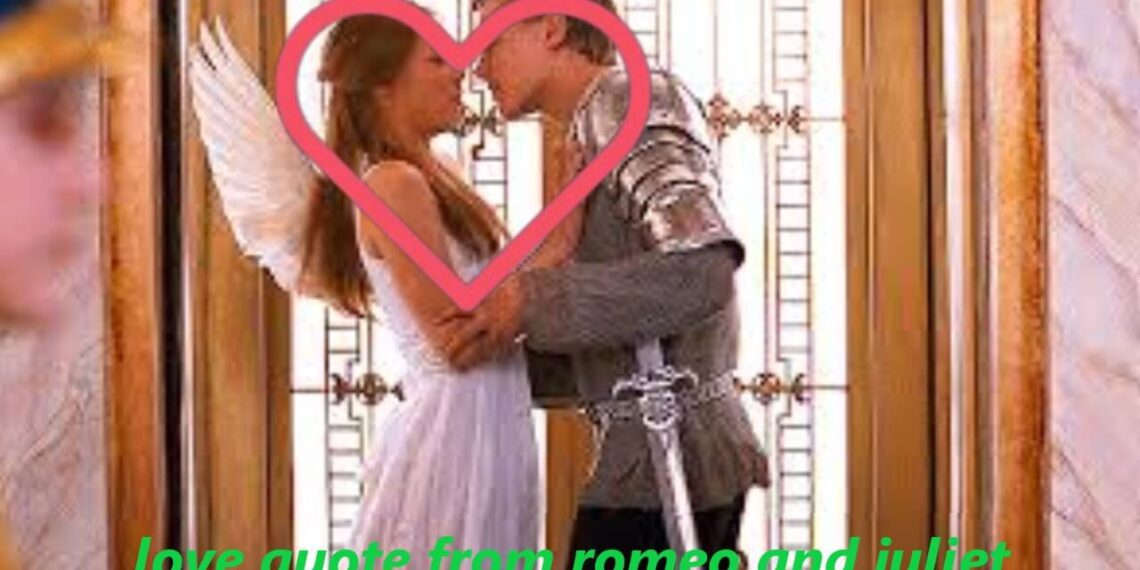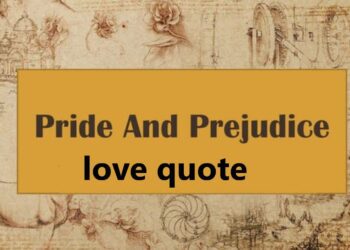Shakespeare’s Romeo and Juliet was, of course, an age-old story of love, its messiness, its paradoxes. This classic tragedy is rich in lines that have passed from book to book as timeless symbol of romantic love. Everything from Romeo’s tender teenage crushes to the transformative love between him and Juliet, Shakespeare’s play is filled with truth. We explore in this essay the importance of these quotes on love from Romeo and Juliet because they express the nature of love as both freeing and destroying.
1. Love’s Story: Rosaline to Juliet
Romeo’s affection for Rosaline is childish and shallow in the play’s opening, which is shown by his clichéd lines:
“Love is blind and love will make a way”.
Romeo’s prose here mirrors Elizabethan love poems’ tropological metaphors, which even his mates mock. But his meeting with Juliet kickstarts the change from passion to love. Such a shift points to the transforming force of genuine connection, not love or attraction.
2. Love Amidst Conflict: Juliet’s Realization
Most popular is Juliet’s dismay when she finds out who Romeo is: The most well-known line in the play describes Juliet’s despair at discovering who Romeo is:
“My only love came from my only hate,’’ I sang.
Too early seen not known, too late know’d!” (1.5.)
And these lines sum up the play’s primary ambiguity: love and hate are one. The notion that love arises from hate makes the tensions between their families even greater. Juliet’s apologies for meeting Romeo “too early” anticipates the tragic storyline and the point is that Romeo and Juliet love has a dangerous fast-track.
3. Love’s Boundless Power: Romeo’s Declaration
When Juliet asks Romeo how he had managed to break through the walls of the Capulet, he replies in poetry as well as metaphor:
‘Be with the air of love i’erpecke these dike’ns,’ said he.
Because rocky borders can’t keep love.” (2.2.)
Romeo’s edict shows love as a power that transcends material and social borders. He is romantically idealistic while Juliet is practical, the opposite of the twin views of love. The theme of love in Romeo’s “light wings” is hopeful and freeing, and it’s a theme running through the play.
4. Infinite Love: Juliet’s Passion
Juliet tells Romeo she loves him with powerful descriptions:
‘My harvest is endless as the ocean,’ she said.
My affections as wide; the more I give tothee, the more I love Thee.
The more I have, for both are unlimited.” (2.2.)
These lines describe Juliet’s love as total and complete. Unlike Romeo, the speech is rife with classical poetry; Juliet’s are harsh and honest. Her metaphor of love as a sea, representing the depth and breadth of her feelings. There are also sexual notes to her words, and this is also a sign of her embodied appreciation of love’s bodily and emotional aspects.
5. Love’s Duality: Freedom and Destruction
Love in the play can simultaneously be a liberating force and an apocalyptic one. If for Romeo, love liberates him from family responsibility, for Juliet, it liberates her from social control. But their passion also makes things happen faster, as we see in the speed of their fling. And the dual nature of Romeo and Juliet makes love a force of inspiration and devastation at the same time.
Conclusion
In the love lines of Romeo and Juliet, we see the many faces of love: its power to conquer, its infinitude, and its tragic fallout if involved in civil war. These are immortalised by Shakespeare’s poetic brilliance, and the play continues to be a play about love in its purest and most rhapsodic forms. Those quotations are what can make us understand Romeo and Juliet as a literary monument and an expression of human relationships, and not just as romance.





